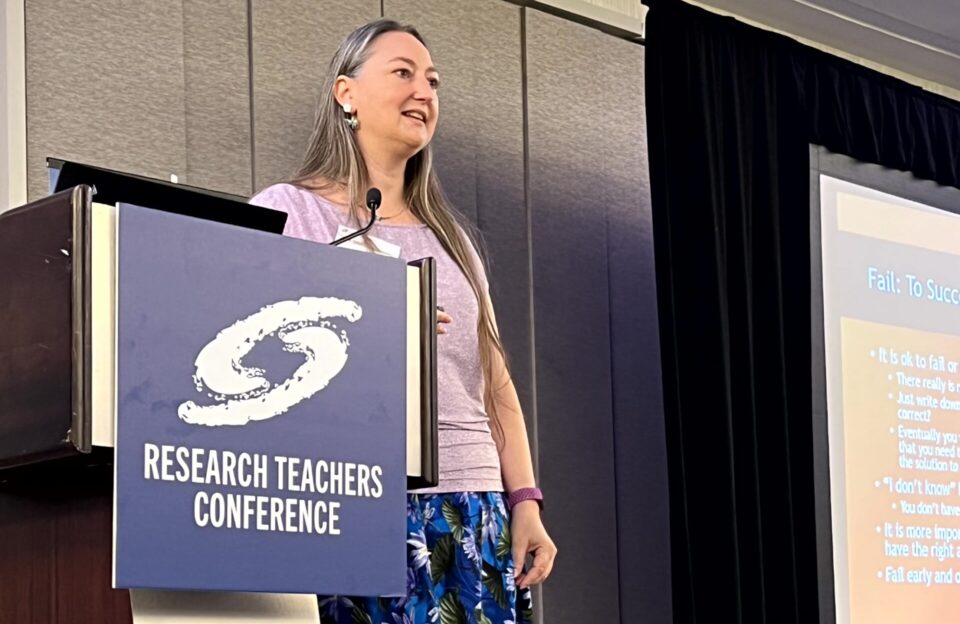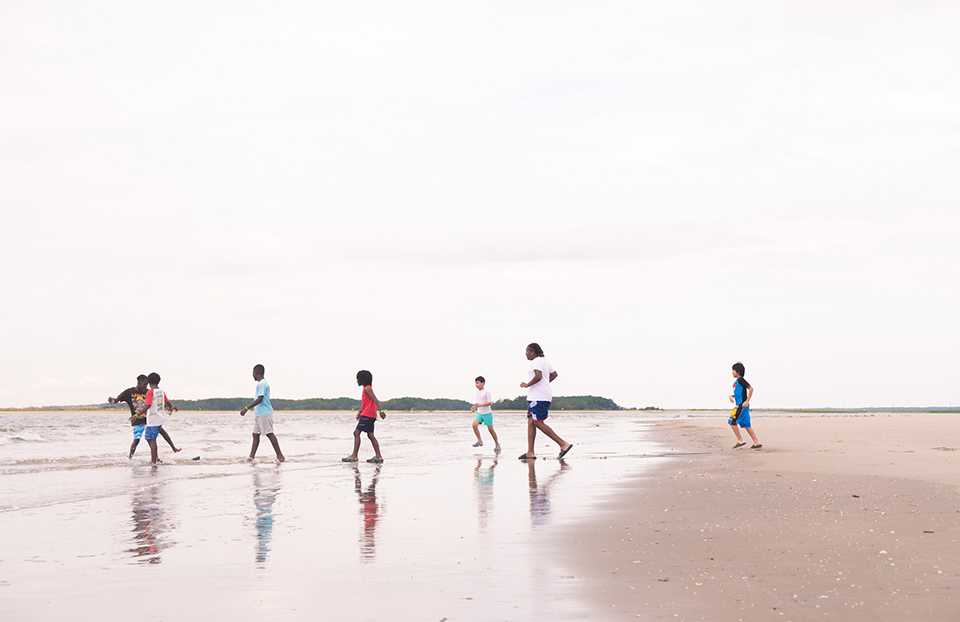How embracing failure can help students succeed in STEM

After two years of holding virtual conferences, 75 teachers traveling from 35 states gathered in Washington, D.C. for the Middle School Research Teachers Conference this summer. During the conference, middle school teachers attended workshops, discussions and learned how to help guide their students to participate in STEM research competitions.
In her keynote address Laura Smith-Velazquez, Principal Scientist at Charles River Analytics, who is Eastern Woodland Cherokee, discussed the importance of teaching students to build relationships with their surroundings and help them understand that failure is necessary to succeed.
As a first-generation high school graduate, Laura shared that her scientific foundation stemmed from her Cherokee culture, which encourages observation of the natural world—stressing the importance of examining different viewpoints and asking questions.
“What I realized is, being Cherokee, I already had a system-level thinking. I already had the understanding that you must ask questions and learn deeply. Now, I try and give that to the kids,
teaching them to use perspective and look from all different views,” Laura explained. “A perspective of a different point of view is key to teaching good scientists. There’s always going to be a different question. There’s always going to be findings that don’t quite fit.”
Laura encouraged teachers to direct their own energy and their students’ energy away from fitting into a mold, saying that it can take momentum away from being successful. “You don’t have to fit the mold. Get rid of the mold, then fail early and often. You have to learn how to work through failures and that failure is not a bad thing.”
Through failure, Laura shared that she was able to grow her curiosity, which made her more open to learning a variety of STEM skills. In addition to understanding her surroundings and being comfortable with failing, Laura says asking questions and having those questions challenged by her teachers helped balance her perspectives.
“There’s really no wrong and right in research, there are just findings. There’s asking the question. Maybe it’s not the right answer for this question, maybe you need to ask another question,” she said. “Kids learn with interaction. They learn by you asking questions just as much as learning from the answers to their questions. It’s very good to not give all the answers, but to teach them how to look it up themselves, teach that curiosity.”
By having her questions challenged, Laura learned how critical it is to harness diversity within STEM, acknowledging how important it is that everyone thinks differently especially, in science. “You, as teachers, are facilitating and enabling the next generation of explorers. They will go on to facilitate and encourage the next generation. That’s stewardship. Without you, where are we going to be? Where are they going to be?”
Laura Smith-Velazquez serves as Principal Scientist at Charles River Analytics, a Commander for the Civil Air Patrol and is the Indigenous Peoples Affinity Group lead of the Society of Women Engineers. She also serves as a mentor for Rosie Riveters, a Society for Science STEM Action Grant recipient, and is a member of the American Indian Science and Engineering Society.


